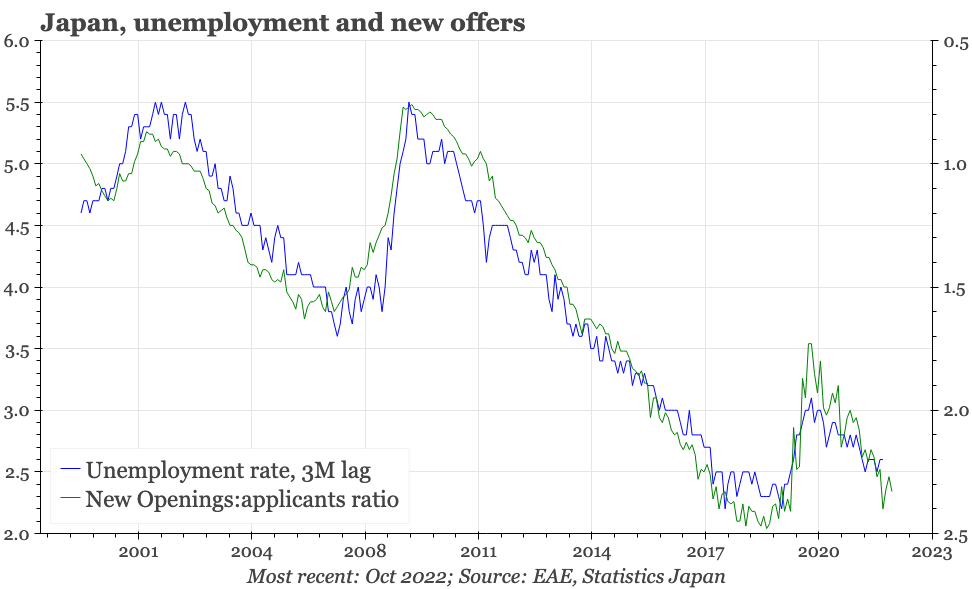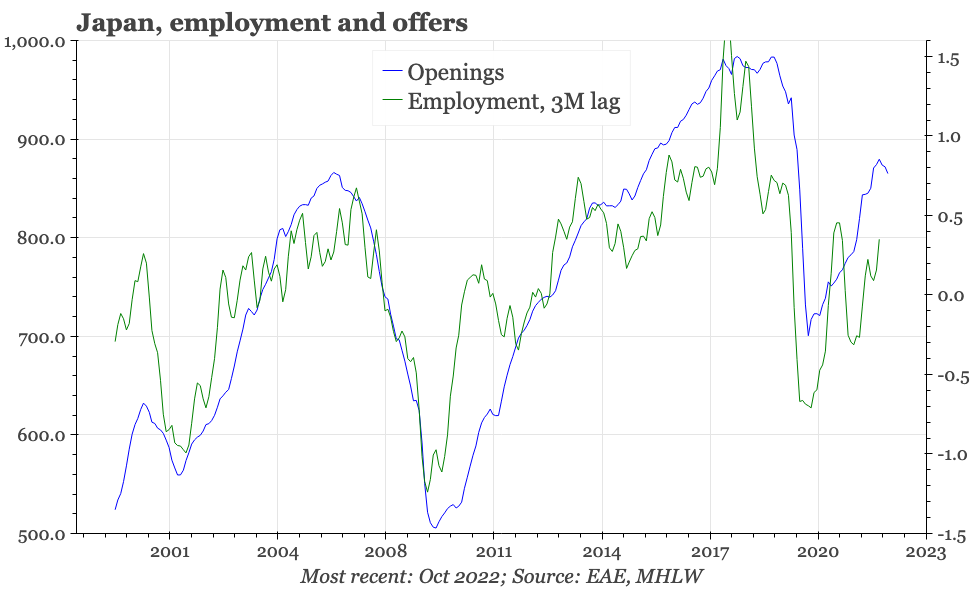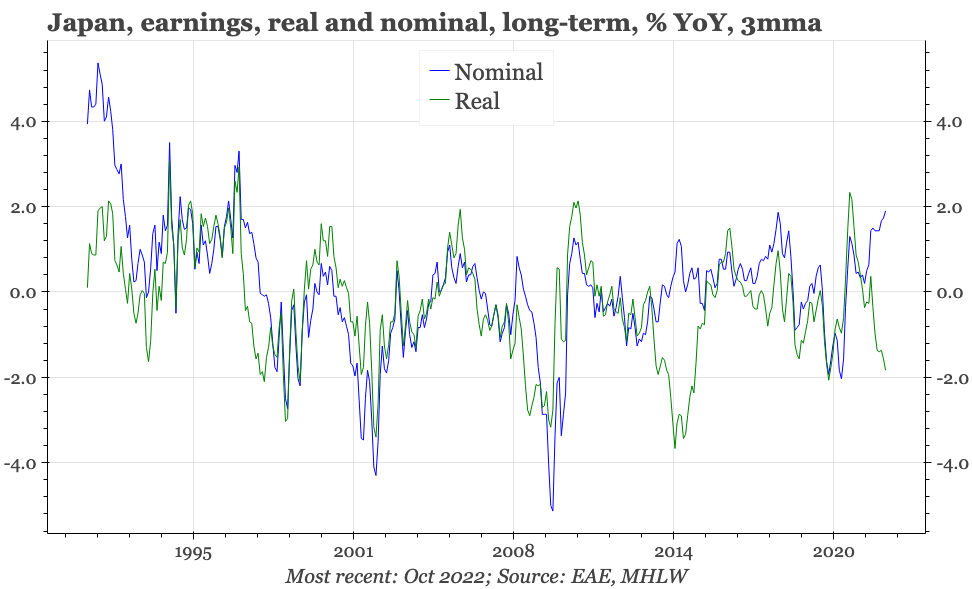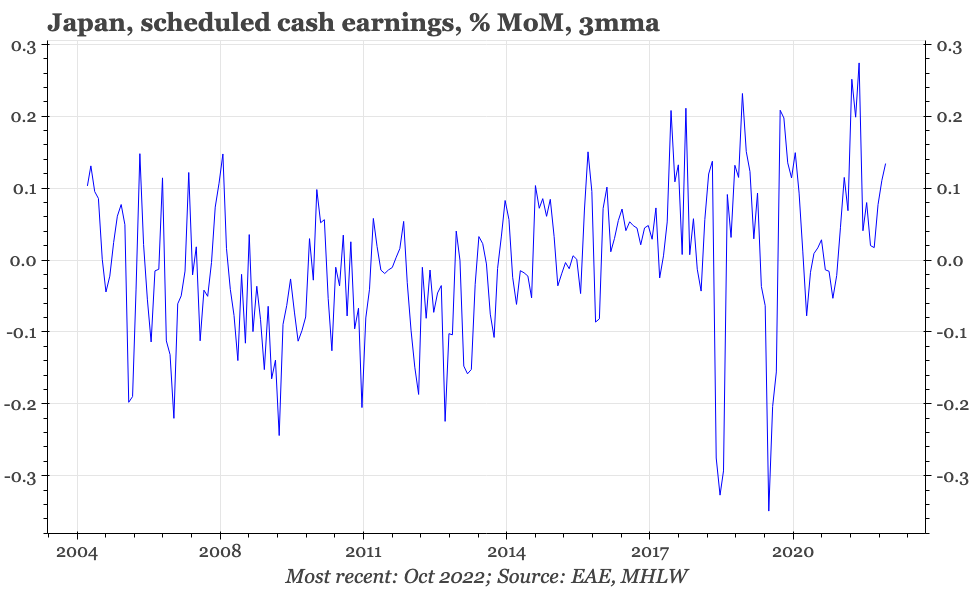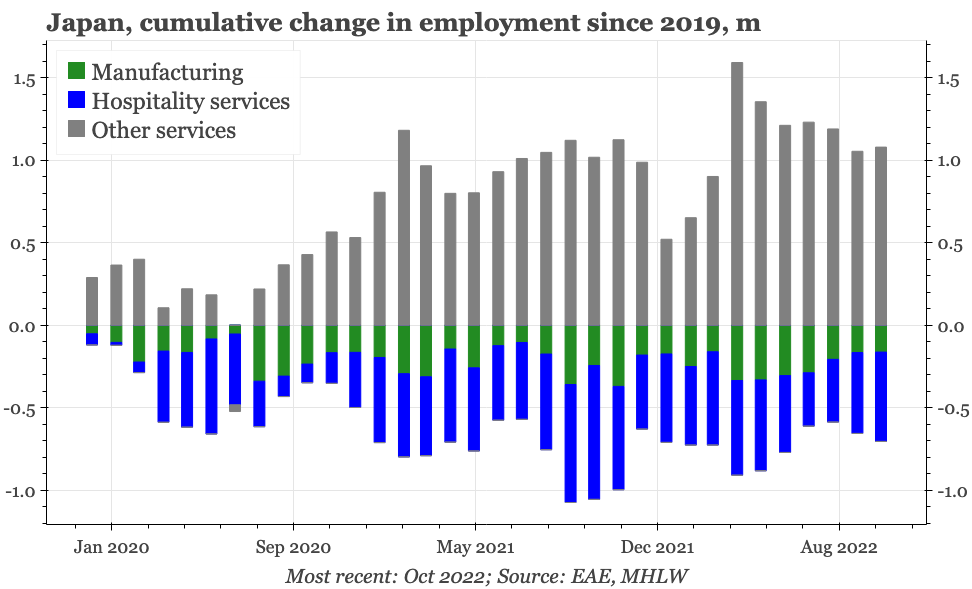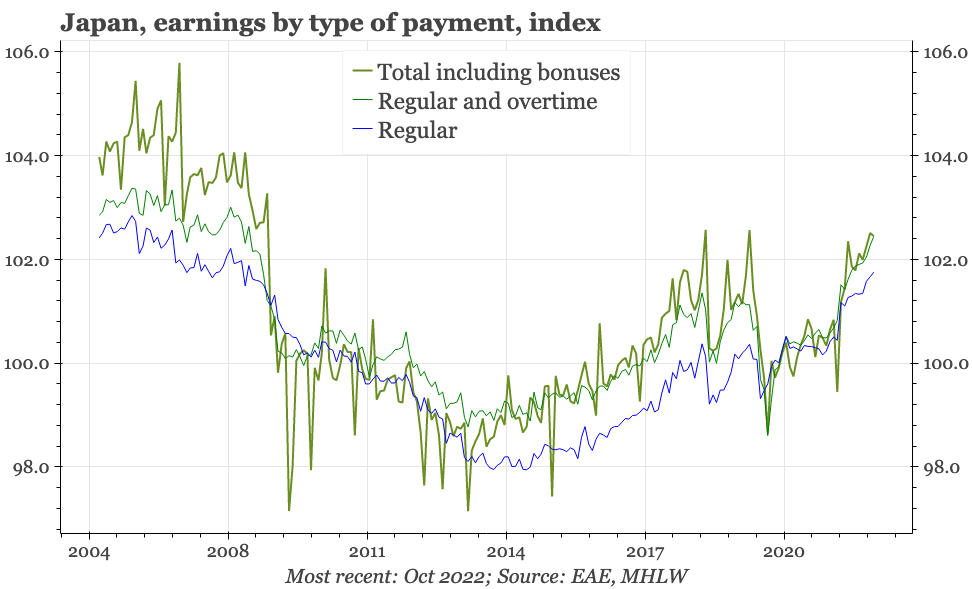Japan – incrementally stronger wages
Modest wage growth is gradually accelerating. Labour market dynamics are consistent with that continuing. There is upside risk, but that remains the same as it has been the last few months: normalisation of the economy after covid.
October wage data
Headline growth in earnings accelerated in October to 1.9% YoY, the fastest since July 2018 (and except for that period in mid-2018, the highest since the 1990s). Some of that was base effect, with total earnings in JPY terms actually ticking down in October. Nominal wage growth of 2% also remains below inflation, and in fact the rate of decline in real wages is accelerating. That isn't good news for households, and explains why consumer sentiment continues to decline.
Taking a step back, and there is evidence that the underlying rate of growth in nominal wages is at least back to pre-covid levels, and shows signs of accelerating. Total cash earnings are affected by the payment of bonuses and overtime. Excluding those gives scheduled wages, and they grew by around 0.1% MoM in the three months to October, which is above the average of 0.04% in 2016-19, and the slight contraction recorded in the four years before that. On a YoY basis, regular wage growth is running at 1.4%, the fastest since the 1990s.
Of course, even without inflation being relatively high, these are still very (very) modest rates of growth. And, rather than suggesting a big acceleration, labour market dynamics look consistent with a rise in wage growth from here which continues to be gradual rather than sharp. Unemployment does appear on track to drop in the coming months, but not quite to the lows of 2019. New job offers are reasonably strong, but aren't lifting in a way that would suggest a further big increase in employment.
The one big risk around this is the normalisation of the economy after covid, a process that should still have room to run. Unsurprisingly, given the closed border and the hit to domestic activity caused by both the virus itself and the various restrictions used by the government to try to control the disease, the hospitality services industry took a big hit in 2020-21. Employment in the sector continues to run below pre-pandemic levels, which goes a long way to explain why the overall number of jobs in Japan has yet to bounce back to the highs reached in 2019.
The border is now reopening, and it looks like the whole of Asia is finally on the road to normalisation; for Japan the fact that even Beijing now seems to be exiting zero covid is particularly significant, given that before covid, China was Japan's biggest source of tourism. So, it is possible that employment in hotels and restaurants now does recover, tightening the labour market and so putting further upwards pressure on wages. Admittedly, this normalisation process should have been a source of upside risk to the economy in the last few months, but didn't really materialise. Still, it remains something to be monitoring into 2023.
